Nine Places to Explore at Planting Fields Arboretum State Historic Park on Long Island, New York
The fall and spring weekend home of William and Mai Coe and their four children during the “Gilded Age” of the 20th century, Planting Fields is a 400 acre estate, home to dozens of designed gardens, five miles of woodland trails, two green houses, and a 65 room Tudor Revival style home. William Coe, a Brit who came to America as a young child and made his fortunes in marine insurance (despite the fact that he was the insurer of the Titanic!). The family primarily lived in Manhattan and spent their summers on a Wyoming ranch. They enjoyed Planting Fields for the outdoor spaces and often spent time horseback riding and hiking.
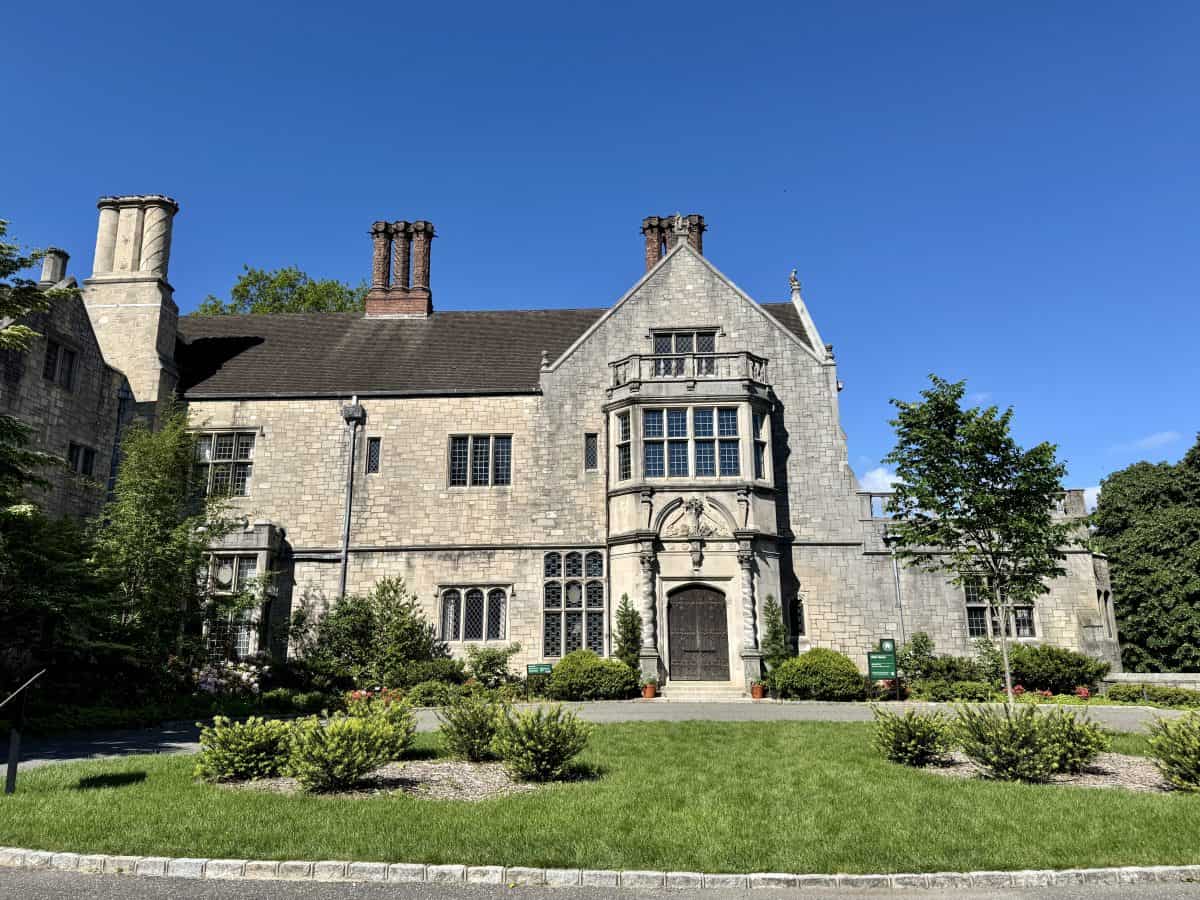
The name Planting Fields comes from the indigenous people, the Mantinecock, who originally used the land for agriculture and named the property Planting Fields in their native language for its rich soil. The family moved into the house in 1913 and rebuilt it after a 1918 fire destroyed the original home. The estate was sold to the New York State Department of Education in 1949, and after William’s death in 1955, the family took most of their personal possessions before the Department of Education opened a college for international students inside the Main House. After the college closed in 1962, the property was turned into a museum. The grounds, gardens, and greenhouses are overseen by the state of New York, and the Planting Fields Foundation oversees the Main House and opened it as a museum in 1972. The Main House does display a few pieces from the Coe family, but the majority of furnishings are period authentic donations. Planting Fields is one of the few Long Island mansions that still has its entire original land.
Visitors are welcome to explore the grounds, gardens, and greenhouses each season and there are plenty of places to picnic and let kids explore freely. Guided tours are the best way to learn more about the Coe family and 20th century life on Long Island. There is a children’s themed tour- ask for Rosemarie, who is engaging and full of fun trivia.
Travel Tips:

Nine Spots to Explore at Planting Fields:
- Peek inside the Pink Playhouse, built in 1906, one of the oldest buildings on the property.
- Walk through some of the gardens: There’s everything from rhododendrons, Holly Berry, and Mountain Laurels in the winter; Orchids, Dogwoods, and Violets in the spring; Daylillies and Hydrangeas in the summer; and tons of beautiful foliage in the fall. The cherry collection from the 1980s only has over 75 varieties of flowering (but not edible!) cherry trees. See the full list here and here.
- Find the scalloped staircase in the Camellia Greenhouse, built from 1917 to 1922 by the Olmsted Brothers (famous for their design of Central park and many other republic spaces). The greenhouse is home to 200 camellias, and a couple that date back to the Coes time on the property are still thriving.

Would you like to save this?

- Peek down into the Blue Pool Garden, which Mrs Coe used to host many garden parties, the Surprise Pool, and the Circular Pool, located around the main house.
- Walk through the Bird Sanctuary, created in 1976 as a woodland garden with shallow pools and many habitats for birds.
- Use all five senses in the Sensory Garden, located near the parking lot.
- Hike through some of the five miles of Woodland Trails throughout the property. The Coe family hikes and rode their horses on these trails during their time of the estate. See the trail map here.
- Smell the fragrant flowers blooming in the Main Greenhouse built in stages from 1914 through 1929, the last garden built before the Stock Market Crash of 1929. The Main Greenhouse also hosts seasonal exhibits featuring poinsettias and lilies.


- Play I Spy while touring the Main House. Look for the following items:
- The ship on display above the main entrance to the mansion and the fox and the hare carved on either side of the doors to the Main House
- The 12+ chimneys on the roof (notice the perches below the smoke line- they were put there to attract the birds). There are also 17 fireplaces throughout the Main House.
- The stained class window of St Nicholas (Hi Santa!) inside the vestibule
- The cigar tray (Mr. Coe was a big cigar smoker) and the hidden bar and hidden safe in Mr. Coe’s private study
- The ducks carved into the iron fireplace screen and the carvings of “Man at Arms” and “housewife” on the doors of the Dining Room
- The dozens of animals (elk! buffalo! eagles!) on the golf leaf, hand painted murals of the hidden breakfast Room (the only room with AC in the whole house!)
- The dragon head and tail on either end of the staircase railing.
- The eagle carved out of wood leading to the Writing Room
- The birds on the scenes repainted on the walls of Mrs Coe’s bedroom (repainted in 2010- the originals were painted over and could not be recovered)
- Four showerheads in Mrs. Coe’s private shower
- The wooden carving of an owl on the westside (for sunset) and the rooster on the east side (for sunrise) or the second floor bannister
- The original scale embedded in the floor of Mr. Coe’s private bathroom. He also had a lightbox he used as a sauna.
- The Zodiac signs carved into the ceiling of the stairway
Looking for other fun on Long Island? Check out our features of the Walt Whitman Birthplace State Historic Site, the Long Island Aquarium, the Suffolk County Vanderbilt Museum and Planetarium, our feature of Eagle’s Nest inside the Vanderbilt Museum and Planetarium, and our full City Guide to Sag Harbor.
Disclosure: Our family was given a media pass to tour Planting Fields; all opinions expressed are our own.






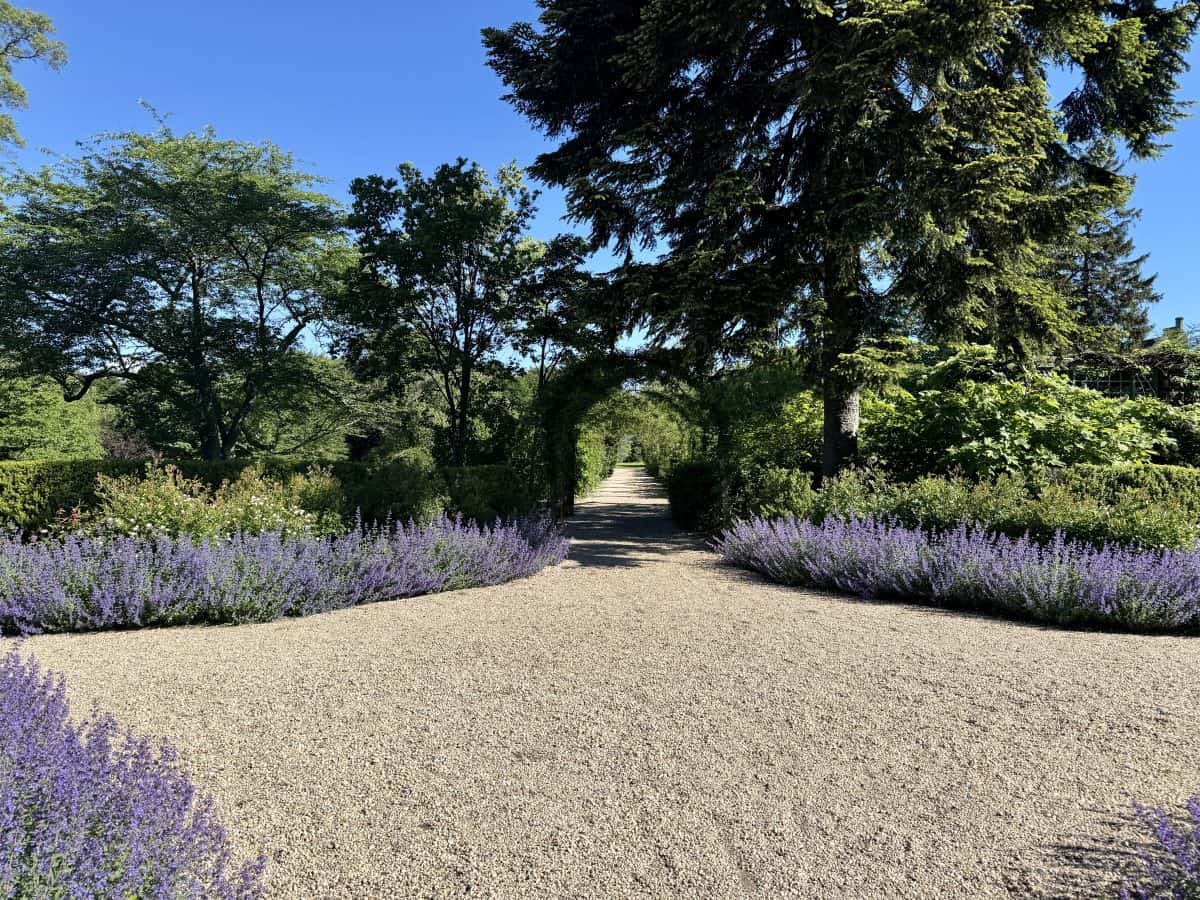



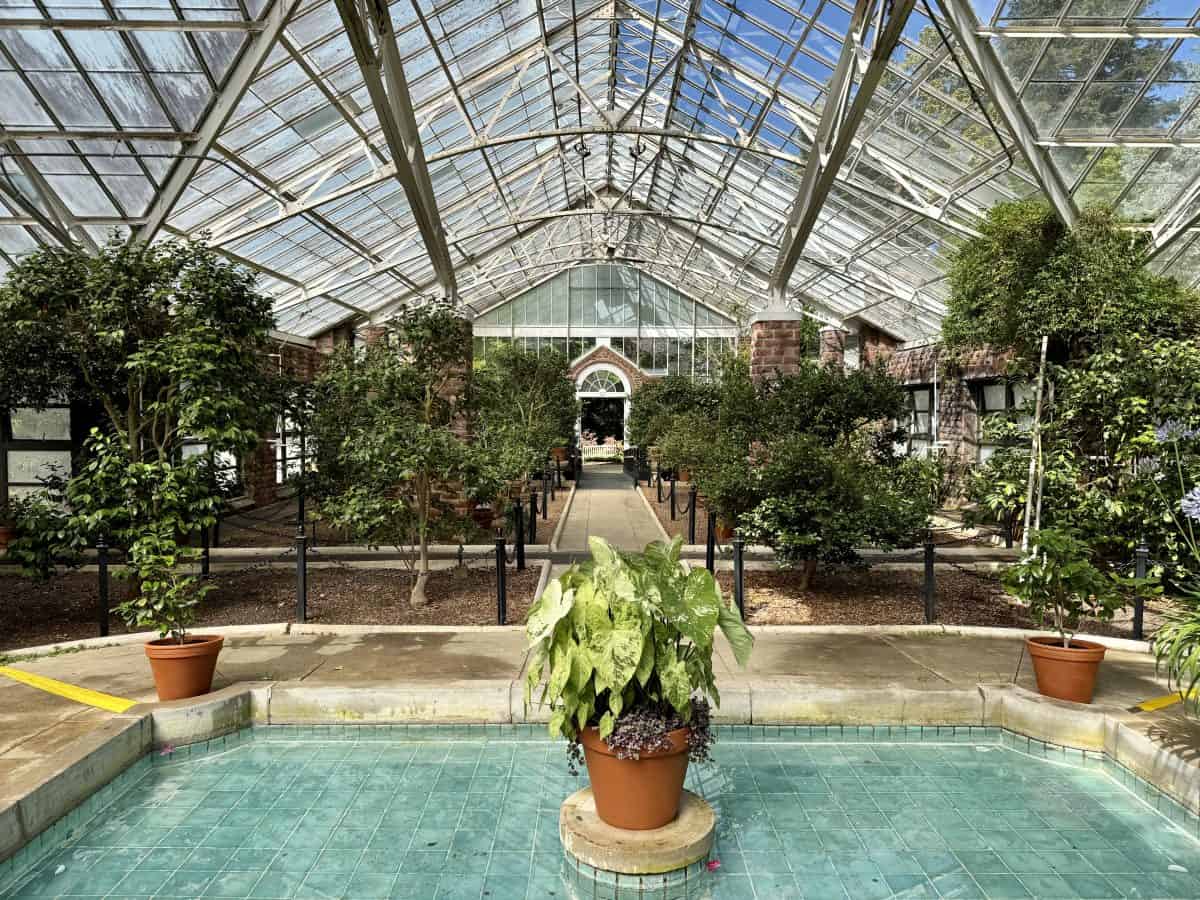









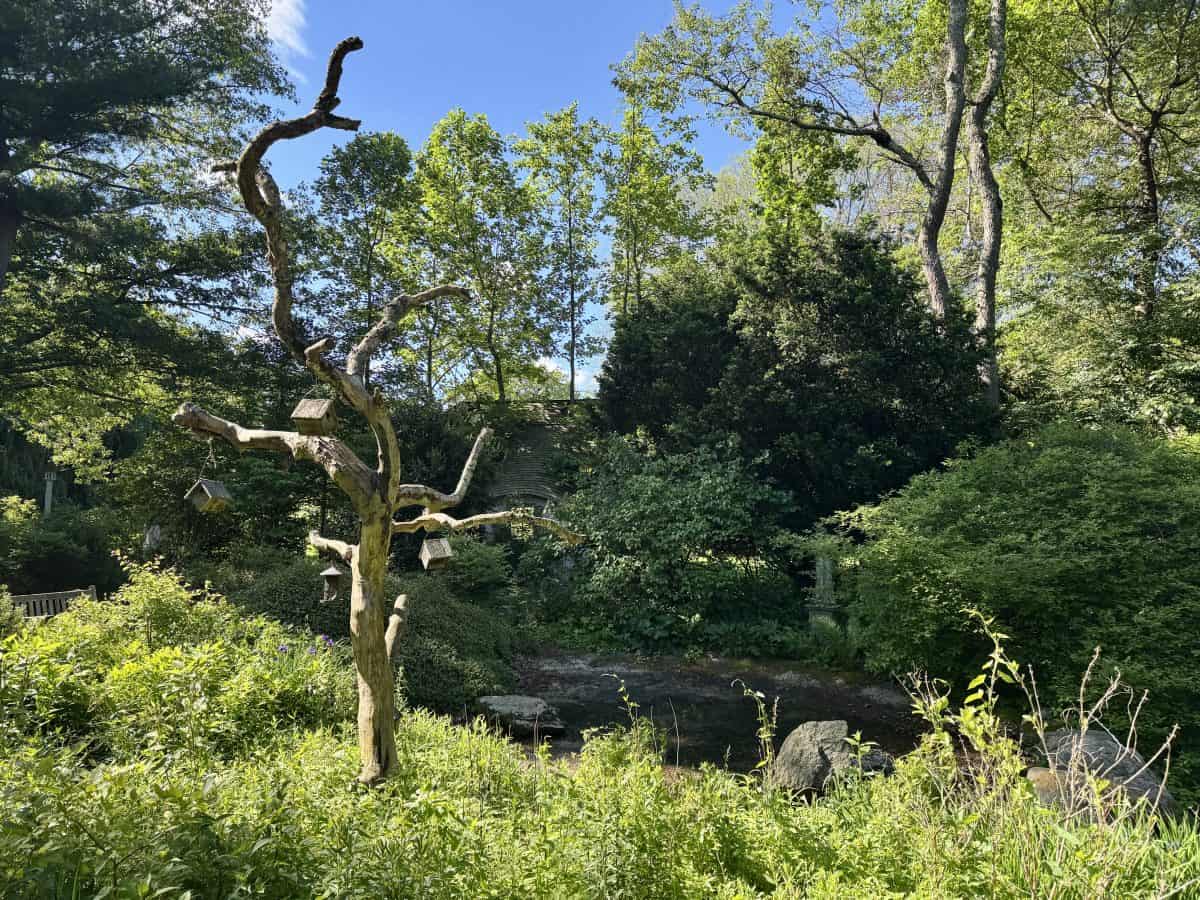



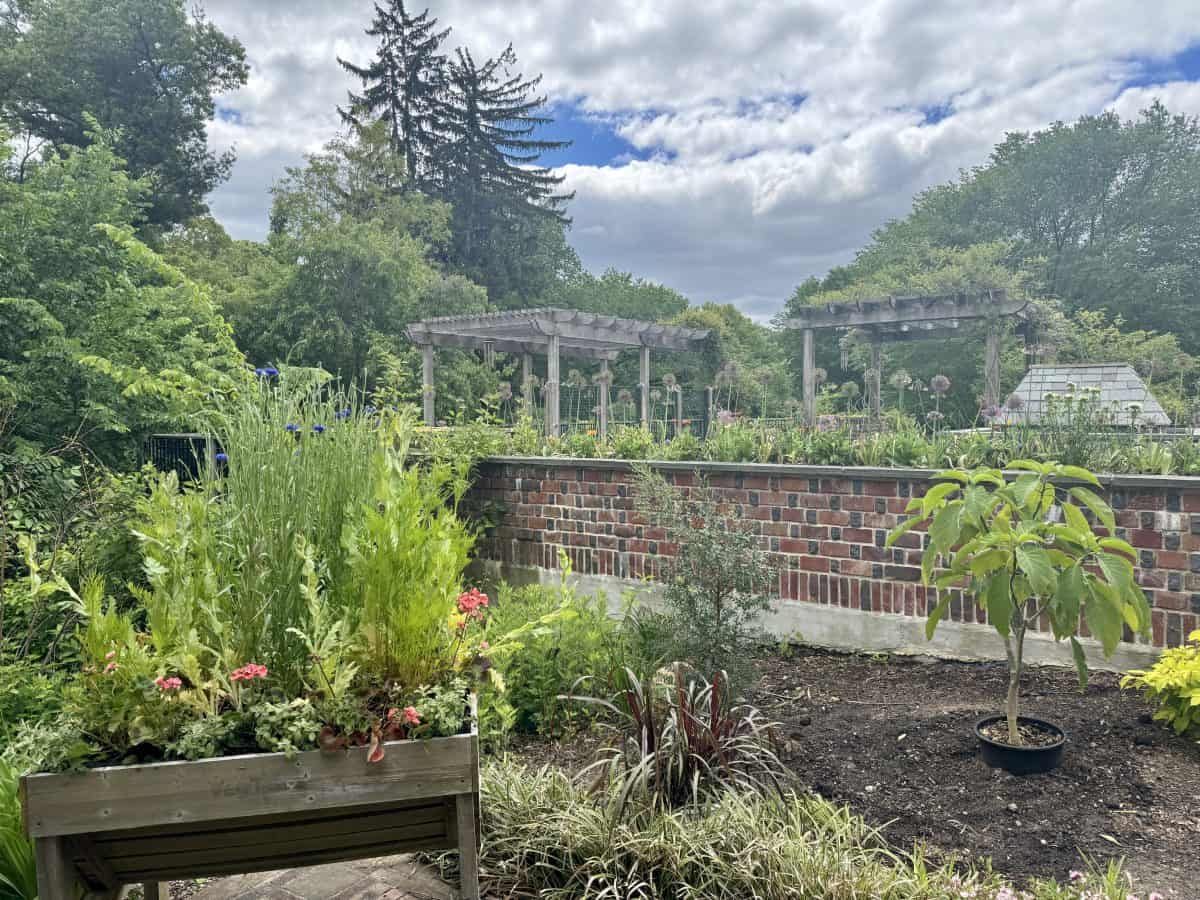





















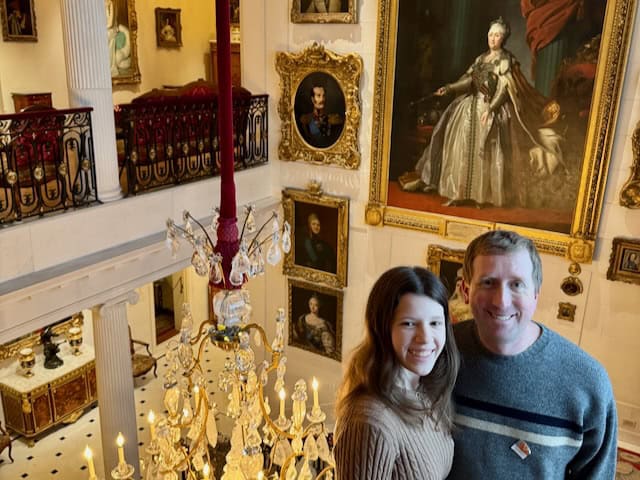

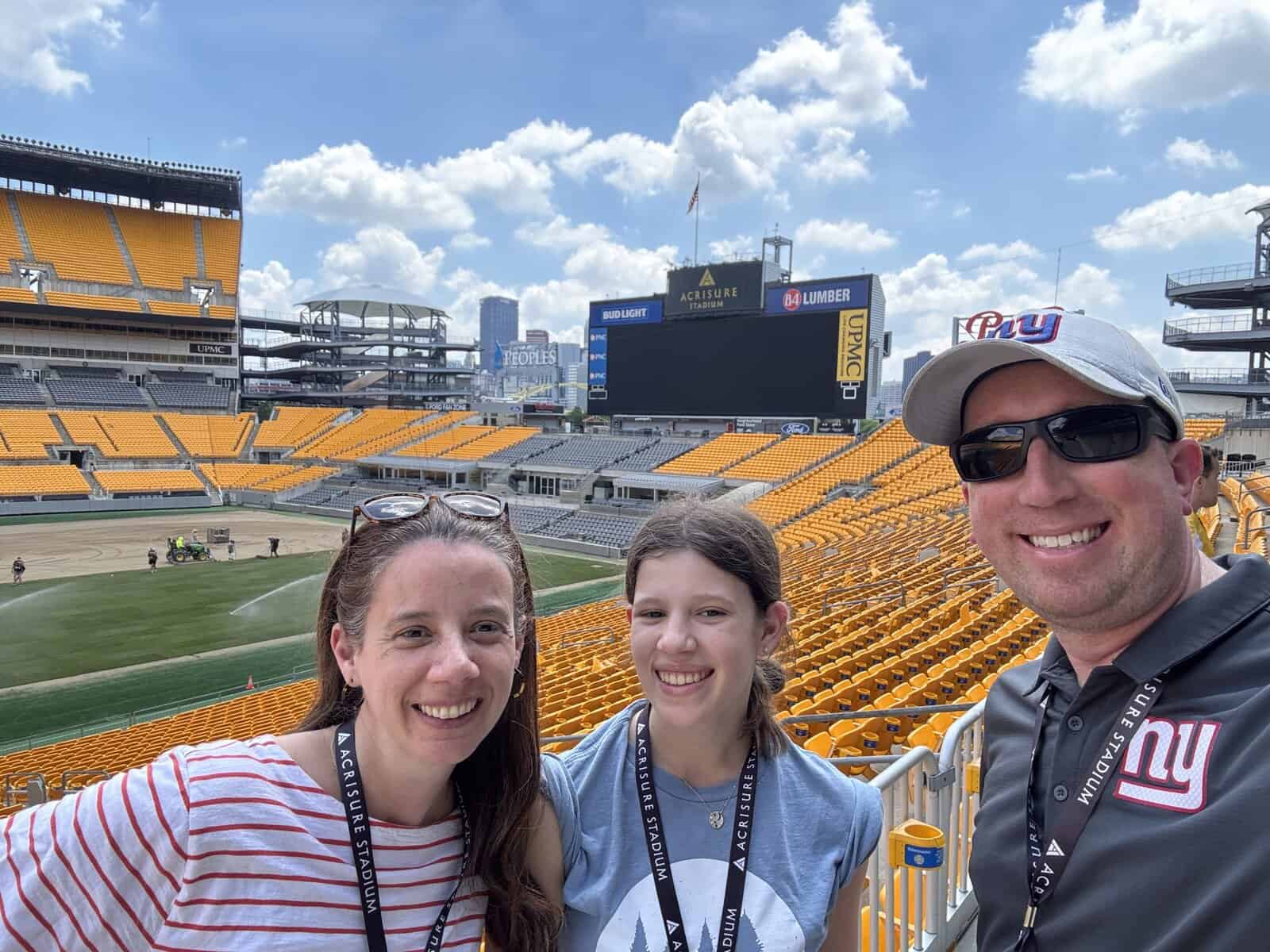

Looks beautiful! The gardens look lovely. Summer definitely seems to be the time to visit the arboretum to enjoy those.
Visiting historical buildings with gorgeous gardens to explore is one of my favourite travel experiences. And this place looks like its right up my ally.
I can´t believe this used to be a private home! It looks absolutely stunning! I am sending this post to my sister who is visiting New York later this year!
I would love to visit this spot!! I love visiting historic sites and I especially love touring historic homes. Hopefully I’m able to make it to this spot soon!!
I love exploring historic homes and gardens – they hold so many stories that are often inspiring. Planting Fields will be on my list when visiting Long Island.